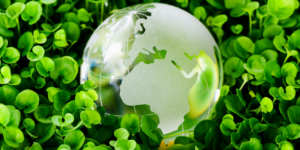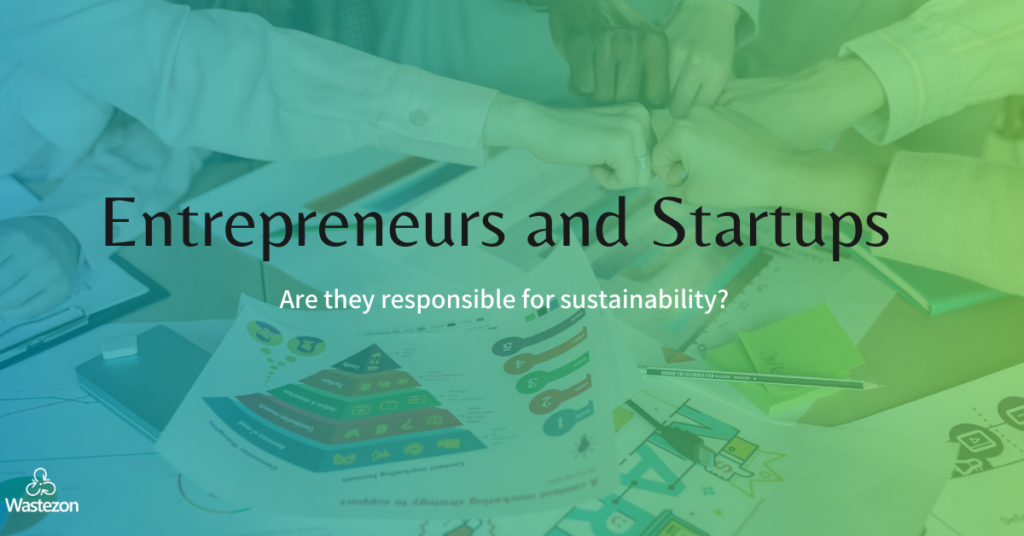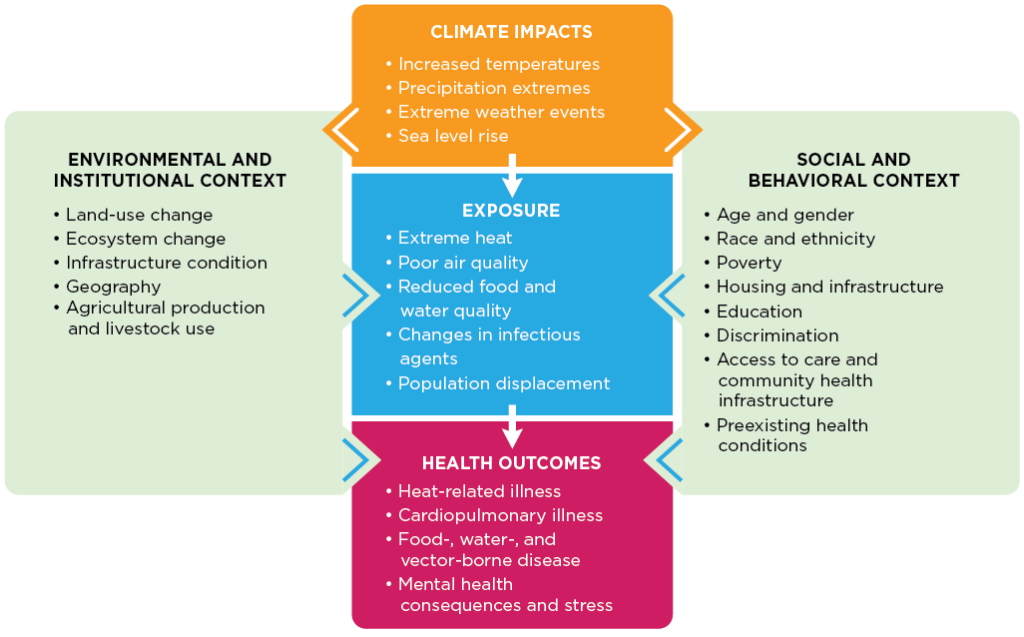Urban Mining and Circular Economy: Pioneering a Greener Path Forward

Urban Mining and the Role of Material Science in the Circular Economy
In the quest for sustainable resource management and reducing environmental impact, the concept of the circular economy has gained immense traction. At the heart of this paradigm shift lies the intriguing concept of urban mining, an innovative approach that redefines waste as a valuable resource. Coupled with the insights of material science, urban mining holds the promise of revolutionizing how we view, use, and recycle materials within a circular economy framework.
Understanding Urban Mining: Turning Waste into Resources
Urban mining is the process of recovering valuable resources from discarded electronic devices, appliances, and other products, often referred to as electronic waste (e-waste) or urban ore. Unlike traditional mining, which extracts raw materials from the Earth’s crust, urban mining involves extracting precious metals and other reusable components from discarded products. This approach not only conserves natural resources but also minimizes the environmental footprint associated with mining activities.
The Circular Economy Connection
The circular economy seeks to decouple economic growth from the consumption of finite resources. By promoting practices that prioritize reuse, recycling, and the extension of product life cycles, the circular economy aims to create a regenerative system where waste is minimized, and resources are continuously looped back into the production cycle. Urban mining aligns seamlessly with this vision, as it allows for the recovery of valuable materials from discarded products, reintroducing them into the production process and reducing the need for virgin resources.
Material Science’s Crucial Role
Material science plays a pivotal role in unlocking the potential of urban mining within the circular economy framework. Here’s how:
- Resource Identification: Material scientists are instrumental in identifying the composition of products and understanding the intricate blend of materials used in electronics and appliances. This knowledge is vital for efficient separation and recovery processes during urban mining.
- Innovative Extraction Techniques: Urban mining relies on advanced extraction techniques to recover valuable materials from complex electronic waste. Material scientists develop and refine these techniques to ensure high yields and minimal environmental impact.
- Material Characterization: Understanding the properties and behavior of recovered materials is essential for determining their potential applications. Material scientists analyze recovered materials to ascertain their suitability for reuse in various industries.
- Recyclability Design: Material scientists collaborate with designers and engineers to develop products with enhanced recyclability. By incorporating materials that are easier to separate and recycle, the lifespan of these materials can be extended, reducing waste.
- Quality Control: Ensuring the quality and reliability of recycled materials is crucial for their successful integration into new products. Material scientists play a role in developing standards and quality control processes for recycled materials.
The Path Forward: Collaboration and Innovation
For urban mining to reach its full potential, collaboration between various stakeholders is paramount. Governments, industries, academia, and consumers must work together to create efficient collection systems, establish recycling infrastructure, and promote awareness about the value of recycled materials.
As the world grapples with the challenges of resource scarcity and environmental degradation, urban mining, propelled by the insights of material science, emerges as a beacon of hope. By turning waste into resources and contributing to the circular economy, urban mining offers a tangible solution to the global sustainability puzzle. With continued research, innovation, and concerted efforts, this transformative approach has the power to reshape industries and pave the way toward a more sustainable and resilient future.
This blog post was authored by a member of our team to share their insights and expertise on the topic.

Entrepreneurs and start-ups play a critical role in shaping our economy and society. They are often the ones to identify gaps in the market and develop innovative solutions to meet the needs of consumers. However, with great power comes great responsibility. As the world grapples with the impact of climate change and the growing problem of electronic waste, entrepreneurs and start-ups have a unique responsibility to address these issues.
The first step entrepreneurs and start-ups can take towards aiding climate change and electronic waste issues is to understand the impact of their operations on the environment. The production and disposal of electronic devices contribute significantly to the tech industry’s carbon footprint. Entrepreneurs and start-ups can take concrete steps towards sustainability by conducting a carbon footprint assessment and identifying areas where they can reduce their environmental impact. This could include using renewable energy sources, reducing waste, and implementing energy-efficient technologies.
Another way entrepreneurs and start-ups can contribute to sustainability is by developing products and services that are environmentally conscious. This could involve designing recyclable or biodegradable products or developing services that help consumers reduce their carbon footprint. By developing sustainable products and services, entrepreneurs and start-ups can help reduce the negative impact of the tech industry on the environment.
Entrepreneurs and start-ups can also play a role in promoting sustainability beyond their own operations. By partnering with other organizations and industry leaders, they can advocate for policies and initiatives that promote sustainability. For example, they can lobby for government incentives for companies that adopt sustainable practices, or collaborate with other organizations to develop industry-wide sustainability standards.
In conclusion, entrepreneurs and start-ups have a significant responsibility towards aiding climate change and electronic waste issues. By understanding the impact of their operations on the environment, developing sustainable products and services, and advocating for policies that promote sustainability, they can make meaningful contributions to the fight against climate change and the growing problem of electronic waste. By taking these steps, entrepreneurs and start-ups can demonstrate their commitment not only to their customers and investors but also to the broader community and the planet as a whole.
Climate change has become a pressing issue that poses a significant threat to human health. The effects of climate change are far-reaching and can result in various health problems. The link between human health and climate change is complex, and it is essential to understand its impact on our well-being.
One of the most significant impacts of climate change on human health is the increased frequency and intensity of extreme weather events such as hurricanes, floods, and heat waves. These events can lead to injuries, fatalities, and mental health issues such as anxiety and depression. The rising temperatures and heat waves can also exacerbate respiratory and cardiovascular diseases, especially in vulnerable populations such as the elderly and children.

A report completed by The U.S. Global Change Research Program (USGCRP) created a simplified visual (figure 1) to showcase the different ways climate change adversely affects human health, which is often complex but tracking the changes and the root causes can help understand the health risk and create more push to develop solutions.
Another major cause of human health aligned with climate issues is electronic waste or e-waste. It is a significant contributor to human health problems. E-waste is generated by the disposal of electronic devices and products such as mobile phones, computers, and televisions. It is estimated that only 17.4% of total global e-waste is known to have been collected and properly recycled. These waste products contain toxic chemicals such as lead, mercury, and cadmium, which can harm human health when not disposed of correctly.
Improper disposal of e-waste can lead to these toxins leaching into the environment and contaminating soil, water, and air. This contamination can lead to a range of health problems, including respiratory and neurological damage, birth defects, and cancer. Furthermore, e-waste is often exported to developing countries, where workers are exposed to hazardous working conditions and are at risk of health problems.
So what can we do? Current assessments have implied that applying policies that involve the use of renewable energy, encouraging electric vehicles, preventing wasted food, smart management/operation of nuclear power, and more can result in the changes we need to see in order to save our health and the planet.
In conclusion, human health and the effects of electronic waste and climate change are deeply intertwined. E-waste is a significant contributor to health problems, and climate change poses a significant threat to human health. It is essential to take action to mitigate the impact of e-waste on human health and reduce the impact of climate change on our planet. By doing so, we can protect our health and well-being and ensure a sustainable future for generations to come.

As we build our insatiable demand for non-renewable sources, so does the mountain of minerals and metals that are becoming increasingly destructive to our environment. These are materials we use in different ways, from cell phones to radios; new technological innovations have in fact increased the use of electronic devices coupled with the resources diminishing slowly.
One of the central visions of Wastezon has centered around urban mining, a larger term for what we do here. Urban mining, coined in the 1980s by Professor Hideo Nanjyo of Tohoku University, is a concept that’s slowly gained traction worldwide. At the same time, we become more aware of its connection to electronic waste.
To be more specific, urban mining is the process of reclaiming raw materials from waste products sent to landfills. It looks toward the waste generated by cities and urban environments as a valuable resource, using man-made stocks rather than geological resources.
In the context of Electronic Waste, urban mining focuses on the process of recovering rare metals from discarded waste electrical and electronic equipment using mechanical and chemical treatments.
While actual numbers of the growing e-waste generated have been challenging to make certain of, efforts have been noted; according to a 2014 e-waste report released by the United Nations dictated that the majority of the 2014 global e-waste amounted to almost 60% and consisted of kitchen, bathroom and laundry equipment, while personal devices (phones, computer, etc.) was 7%, Other devices included screens, cameras, lamps and more.
All this tonne of electronic waste estimates to be roughly US$52 Billion in reusable resources, which is high in demand and toxic materials, yet low in availability. The Global E-Waste Monitor of 2014 gathered that this number of e-waste generated also resulted in “..some 16,500 kilotons of iron, 1,900 kilotons of copper, and 300 tonnes of gold..”. If mishandled, toxins like mercury leak into the earth and the air, affecting millions of people’s health.
With urban mining, for it to be successful without being detrimental to the environment things like product life cycle management must meet the needs for utilization of resources. This is where concepts like traceability work hand in hand with urban mining in order to have optimal recovery of the waste materials. By developing effective strategies and technologies, there is promise in being able to reduce the growing rate of e-waste and its dangers

In July 2022, Wastezon was selected as a winner for the Keeling Curve Prize, among 9 other climate projects with significant potential to make impactful changes. Each project or program was awarded $25,000 and a sponsored Fellowship program called the Constellation Fellowship was introduced by the GWMP (Global Warming Mitigation Project).
Wastezon selected 3 fellows who would join the 12-14 week-long fellowship, and be awarded a $1,000 stipend upon completing their fellowship. The team welcomed Ukoh Ebere (Market Analysis Fellow), Paul Okewunmi ( Data Science Fellow), and Christian Bosso (Full-stack Engineering Fellow).
For the past few weeks, selected departments of Wastezon have had lengthy discussions and collaborations with each fellow, and we continue to see the capabilities and value they bring.
Christian Bosso is a Ghanaian with interest in the circular economy and observing how wastes are considered during the design stages of systems. Since joining as our Full-stack Engineering Fellow, knowledge has been wisely imparted both ways, and experiences shared.
Bosso has shown organizational and leadership capabilities by taking the lead in several small projects that encompass major ones such as leading the screening process of our Resourceful Fellows interview, and forming the engineering team for our upcoming project, Wastezon X.
Some of our company values include growth, communication, and innovation; which Bosso embodies and says “ I really appreciate the fact that Wastezon family takes into account such values which have helped my perspective and pushed me to continue excelling at what I came here for and more.”
When it comes to innovation, we like to witness each team member find new ways to help themselves and the team operate; Bosso introduced a framework to ease project management, Scrum, generally used in software development, thus becoming a Scrum Master, also known as a facilitator.
As we enter the third quarter of the year, we’ve been granted another fellowship support, and are currently in search of new fellows to fill these slots :
- Customer Support Fellow
- Data Engineering Fellow
- Business Development Fellow
The deadline is slated for December 2nd and selected fellows will begin January 2023. Interested applicants may apply here.